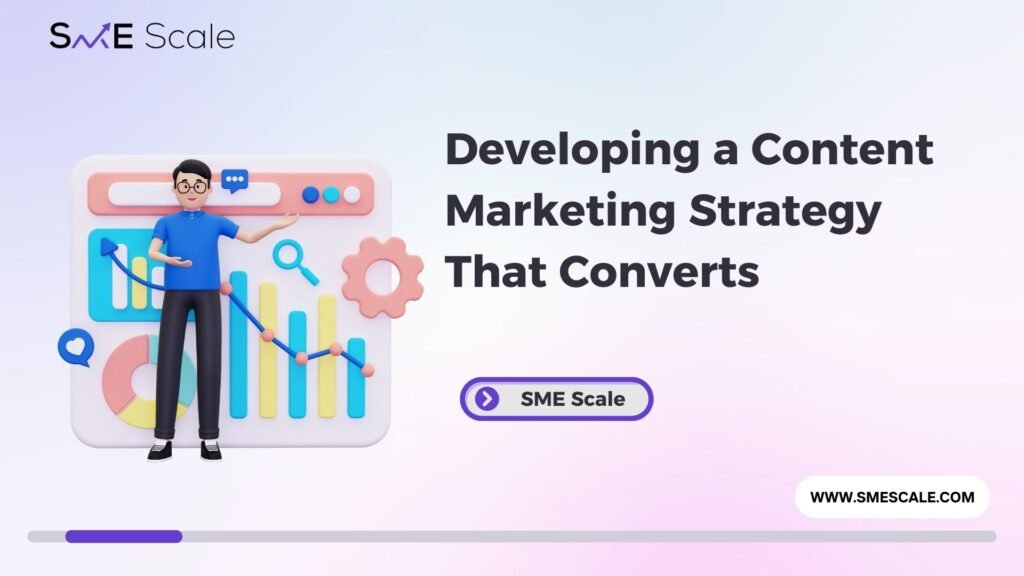
Content marketing is a cornerstone of digital growth, particularly for SMEs. But creating content that resonates with your audience and drives measurable results requires strategy. In this section, we will walk through how to develop a content marketing strategy that converts while exploring the psychology behind its effectiveness.
What is a Content Marketing Strategy?
A content marketing strategy is a systematic approach to creating, distributing, and promoting valuable content to attract, engage, and convert your target audience. The ultimate goal is to turn readers into leads and leads into loyal customers.
For SMEs, content marketing is a cost-effective way to:
Build brand authority.
Improve SEO rankings.
Generate consistent leads.
Nurture customer relationships.
Steps to Develop a High-Converting Content Strategy
1. Know Your Audience (Again!)
Start by understanding who you are creating content for. Use the same buyer personas discussed earlier to align your content with their needs, interests, and preferences.
2. Define Your Goals
Set clear, measurable goals, such as:
Increase website traffic by X%.
Generate Y number of leads per month.
Boost engagement rates on social media.
Align your goals with your overall business objectives.
3. Perform Content Research
Identify content topics and formats that:
Address audience pain points.
Solve specific problems.
Inspire and educate.
Use tools like Google Trends or Ahrefs to identify high-value keywords and trending topics.
4. Choose the Right Content Formats
Common content types for SMEs include:
Blog Posts
Case Studies
Videos
Infographics
Social Media Content
Emails
5. Real-Life Case Study: Scaling with SME Scale
Let’s take the example of EcoBuild Solutions, an SME in the construction industry. Before working with SME Scale, their content strategy lacked focus. SME Scale helped EcoBuild by:
Identifying target keywords for SEO.
Creating blog content and case studies around sustainable construction trends.
Distributing content through email campaigns and LinkedIn.
Results:
Organic traffic increased by 40%.
Monthly leads grew by 32%.
Psychology Behind Content That Converts
Value Creates Trust: Providing free, useful content positions your brand as an authority.
Reciprocity Effect: When you give value, audiences feel inclined to engage or return the favor.
Storytelling Engages the Brain: Stories activate emotions and make content memorable.
Final Thoughts: Partner with SME Scale for Content that Works
Ready to create content that converts? SME Scale’s team of experts will develop tailored content strategies that resonate with your audience and drive measurable results.
Let’s build your growth story today!

